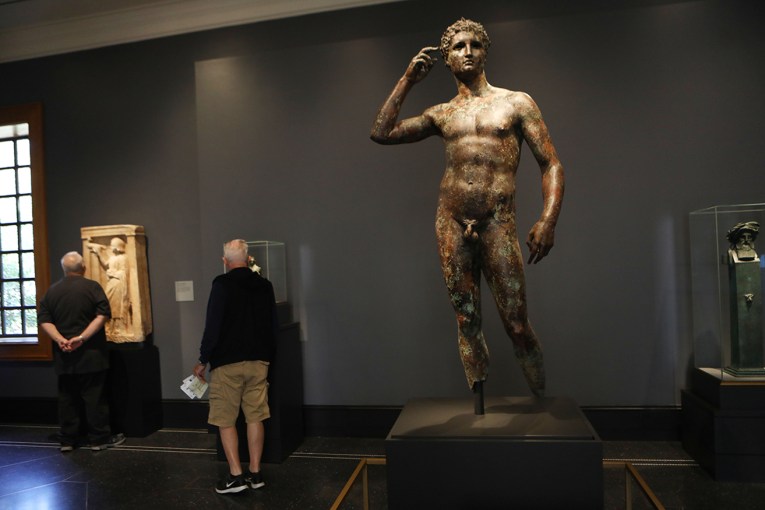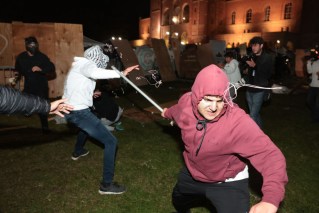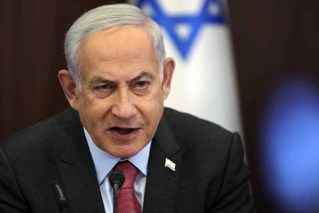Barefoot and alone, but this isolated tribe now has a coronavirus defence

Brazilian soldiers have handed out masks to barefooted Yanomami indigenous people including body-painted warriors carrying spears and bows and arrows on the second day of a military operation to protect isolated tribes from COVID-19.
The Yanomami are the last major isolated people in the Amazon rainforest where dozens of indigenous communities have been infected with the latest disease to come from the outside to threaten their existence.
“It’s all under control. We detected no cases here,” Brazil’s Defence Minister Fernando Azevedo, a retired army general, told reporters on Wednesday at a frontier post on the border with Venezuela.

Defence Minister Fernando Azevedo e Silva visits the Yanomami’s Raposa Serra do Sol Mission. Photo: Getty
Mr Azevedo said the death of two Yanomami purportedly shot by illegal gold miners on the vast reservation was an isolated case that is being investigated by the federal police.
A gold rush that has seen an estimated 20,000 gold prospectors invade Brazil’s largest reservation has poisoned rivers and destroyed forest, and the Yanomami say the miners have brought the novel coronavirus.
Indigenous leaders appealed to the Supreme Court on Wednesday to order the federal government to protect isolated tribes by barring outsiders from reservation lands and expelling illegal poachers, loggers and wildcat miners said to bring fatal diseases.
The indigenous umbrella organisation APIB said 405 indigenous people had died of COVID-19 by June 27, with 9983 infected among 112 different tribes.

A Brazilian Armed Forces medical team takes a blood sample from a baby of the Yanomami. Photo: Getty
At Surucucu, Yanomami families with mothers carrying their bundled infants were frightened at first by the arrival of the medical personnel and supplies of protective equipment and medicine in roaring military helicopters.
The men fumbled with the mask as they covered their faces painted with red body paint from tree barks.
“The indigenous health service (Sesai) is good for us. They help us, so we came to ask for help to see if we are well,” said a Yanomami elder through a large white face mask.
“We walked four hours to arrive here,” he said through an interpreter.
Nurses took temperatures and rapid COVID-19 tests.
“When we arrived they were a little bit afraid, observing us from afar, but then we started gaining their trust, they came closer and all went well,” said Brazilian Air Force medic, Lieutenant Fernanda Ribeiro.
“They ended up liking the care. It has been so rewarding.”








